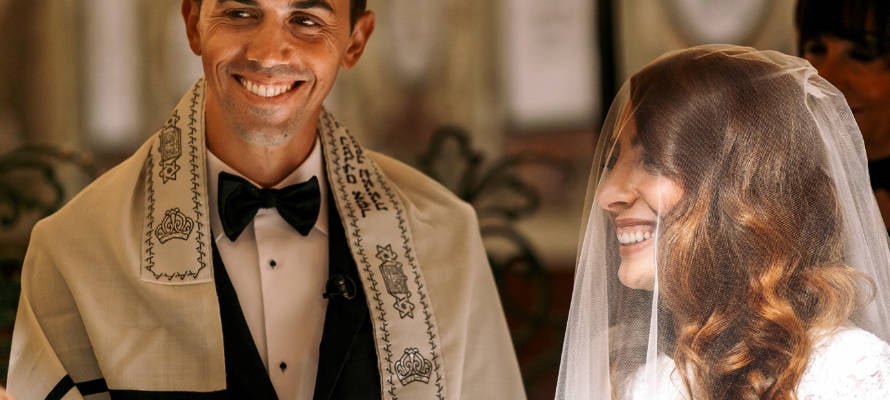In Judaism, a wedding is not just a party. Marriage represents continuity from Abraham the first Jew.
By Rabbi Ari Enkin, Rabbinic Director, United with Israel
The Torah portion of “Toldot” (Genesis 25:19-28:9) and, as its name implies (“offspring”), we read about the offspring of Abraham. As the reading opens up: “These are the offspring of Isaac, the son of Abraham: Abraham was the father of Isaac. And Isaac was forty years old when he married Rebecca, the daughter of Betuel from Paddan Aram, the sister of Laban the Aramean, for himself as a wife.” (Genesis 25:19-20)
The commentators note that the word “offspring” in “these are the offspring of Isaac” refers to Jacob and Esau who will be mentioned shortly. But there is an oddity here. We open the reading by announcing that we will be discussing the offspring of Isaac, but then a tangent ensues.
We first discuss Abraham, and then we discuss Isaac marrying Rebecca, Rebecca’s pregnancy, and more. It is quite a while until we read about Jacob and Esau.
Why is all the background information needed before beginning to speak about what we said we were going to speak about? Why not talk about Jacob and Esau, as the Torah said it would, and only then continue with the family history?
It is explained that all the introduction is not only important, but vital, from a Jewish perspective.
In Judaism, the DNA of a person does not begin with his or her birth. Rather, a person’s DNA begins with their parents — who THEY were, how they met, how and where they married, what cities and communities both sides stem from. Where a Jew was born or simply who is parents are tells us absolutely nothing about him. We need a global picture to get a reading of a person’s DNA.
This is incredibly vital for everyone when seeking a marriage partner. When you marry, you are not merely marrying the partner. You’re not even merely marrying the family. You are marrying into generations of history and experiences. A deep look into the global picture is vital to ensure that such a marriage has a chance of succeeding.
On that note, we read about marriage at the very end of the Torah portion where it says that Esau got married, as it says: “So Esau went to Ishmael and took Machalat, the daughter of Ishmael son of Abraham, sister of Nebaiot, in addition to his previous wives, as a wife for himself.” (Genesis 28:9)
Our Sages teach us that the name “Machalat” means “to forgive” as in the Hebrew word “mechila.” From here it is derived that a person’s sins are forgiven on the day they get married. This is why a bride and groom fast on their wedding day…it’s like a mini-Yom Kippur for them!
In Judaism, a wedding is not just a party. Marriage represents continuity from Abraham the first Jew. And it is our job to ensure that the partner we choose will contribute to the goal of the eternity of the Jewish people.
For more insights from Rabbi Enkin on this week’s Torah portion, click on the links below:
https://unitedwithisrael.org/living-torah-the-special-status-of-the-firstborn-son/
https://unitedwithisrael.org/living-torah-when-it-comes-to-marriage-look-beneath-the-surface/
https://unitedwithisrael.org/living-torah-dont-just-live-for-the-moment-live-for-what-really-counts/
